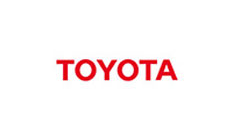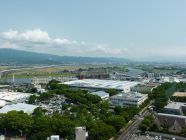Recalls, production cuts, and the slow pace of transformation are all stepping up Toyota's market share to others.
Recently, according to CCTV reports, Toyota Motor recently announced the recall of more than 110,000 vehicles. The recalled models involved 39 models including the "Prius", a total of 111,842 vehicles. It is reported that the production date of the recalled vehicles is from April to August, and there are two main types of problems. One type is due to defects in the control program, which may cause the emergency communication device of the vehicle to be unable to communicate with voice, and the hybrid power system stops working, making the car unable to drive; the other type is the cracking of the welding parts of some parts of the engine, which may lead to substandard exhaust emissions. . The person in charge of Toyota's publicity department said that the recall does not involve the Chinese market.

Industry insiders said that although this large-scale recall did not involve the domestic market, many of the problems of "have fallen a boat" have already had a real impact on Toyota.
multiple recalls
Since 2021, Toyota has carried out multiple recalls in China.
Caijing.com's car review found that from 2021 to the present, there have been 8 recalls of Toyota models, totaling 634,547 vehicles. The models involved include imported TOYOTA SUPRA, Corolla Shuangqing, Leilink Shuangqing, imported Alfa, imported Lexus CT200h hybrid electric vehicle, Corolla, Highlander, imported Lexus RX300, imported Toyota Wesa, Camry.
On September 6, Toyota Motor (China) Investment Co., Ltd. filed a recall plan with the State Administration for Market Regulation in accordance with the requirements of the "Regulations on the Recall of Defective Automobile Products" and the "Measures for the Implementation of the Regulations on the Administration of Recall of Defective Automobile Products." It has been decided to recall some imported TOYOTA SUPRA vehicles produced between March 1, 2021 and June 21, 2021, with a total of 124 vehicles.
On July 23, Tianjin FAW Toyota Motor Co., Ltd. and GAC Toyota Motor Co., Ltd. filed a recall plan with the State Administration of Market Supervision and Administration in accordance with the requirements of the "Regulations on the Recall of Defective Automobile Products" and the "Implementation Measures for the Regulations on the Administration of Recall of Defective Automobile Products." , The following vehicles will be recalled from August 2, 2021: Tianjin FAW Toyota Motor Co., Ltd. recalls some of the Corolla Shuangqing vehicles produced between August 22, 2019 and July 19, 2021, a total of 116,551 vehicles; GAC Toyota Motor Co., Ltd. The company recalled a total of 109,034 Ralink Shuangqing vehicles produced between May 29, 2019 and July 19, 2021.
On the same day, Toyota Motor (China) Investment Co., Ltd. filed a recall plan with the State Administration of Market Supervision and Administration in accordance with the requirements of the "Regulations on the Recall of Defective Automobile Products" and the "Implementation Measures of the Regulations on the Administration of Recall of Defective Automobile Products." It has been decided that starting September 30, 2021, a total of 12,955 imported Elfa cars with a production date from December 11, 2017 to April 1, 2019 will be recalled again.
On June 9, Toyota Motor (China) Investment Co., Ltd. filed a recall plan with the State Administration for Market Regulation in accordance with the requirements of the "Regulations on the Recall of Defective Automobile Products" and the "Implementation Measures of the Regulations on the Recall of Defective Automobile Products." It was decided to recall part of imported Lexus CT200h hybrid electric vehicles produced from February 9, 2021 to April 7, 2021 from July 31, 2021, a total of 948 vehicles.
June 3, a few days ago, Tianjin FAW Toyota Motor Co., Ltd., GAC Toyota Motor Co., Ltd., Toyota Motor (China) Investment Co., Ltd. in accordance with the "Defective Automobile Product Recall Management Regulations" and "Defective Automobile Product Recall Management Regulations Implementation Measures" requirements , And filed the recall plan with the State Administration of Market Supervision and Administration.
A few days ago, Toyota Motor (China) Investment Co., Ltd. filed a recall plan with the State Administration for Market Regulation in accordance with the requirements of the "Regulations on the Recall of Defective Automobile Products" and the "Measures for the Implementation of the Regulations on the Recall of Defective Automobile Products." It was decided to recall some imported Toyota Weisa vehicles produced between April 10, 2012 and July 1, 2015, starting from July 15, 2021, totaling 2,109 vehicles.
On January 29, GAC Toyota Motor Co., Ltd. filed a recall plan with the State Administration for Market Regulation in accordance with the requirements of the "Regulations on the Recall of Defective Automobile Products" and the "Implementation Measures of the Regulations on the Recall of Defective Automobile Products". It was decided to recall some Camry and Highlander vehicles from March 31, 2021, a total of 53,000 vehicles.
The large-scale recall may only affect Toyota's "brand reputation", but frequent production cuts can fundamentally hinder the pace of Toyota product launches.
frequent production cuts
On September 17, due to a global chip shortage, Toyota announced several times that it would reduce production.
Toyota Motor said that 27 production lines at all 14 factories in Japan will be temporarily suspended in October, and the suspension will last for up to 11 days. The affected vehicles include Toyota Corolla, Camry, RAV4, Crown, Prius, Alpha, etc. The main models, as well as high-end brands Lexus LS, IS, RC, NX and other models. Toyota has also previously announced that in October, Toyota will reduce production of approximately 330,000 vehicles worldwide, of which 150,000 vehicles in Japan.
The official announcement stated that the main reason for the production adjustment is that due to the spread of the new crown epidemic in Southeast Asia and the impact of tight chip supply, the operating capacity of some local suppliers has declined. Although Toyota factories and suppliers are taking quarantine and vaccination measures to respond, the spread of the epidemic is still unpredictable. Therefore, due to blockades in different regions, it is difficult for some manufacturers to maintain operations. Toyota is trying to transfer production to other regions.
According to a CCTV financial report, in August, Toyota announced that due to the shortage of parts and components caused by the epidemic, it had made significant adjustments to production from the end of the month to September. 27 production lines in 14 factories would be suspended. Global auto production will also be reduced by 40% from the originally planned nearly 900,000 vehicles, which means a reduction of approximately 360,000 vehicles. Specifically, Japan will reduce production by approximately 140,000 vehicles; overseas approximately 220,000 vehicles.
Toyota Motor’s latest production and sales data shows that due to the shortage of parts and components, the company’s global auto production in August fell 16.2% year-on-year to 531,000 units. This is also the first decline in production for Toyota in the past year.
In fact, many other Japanese car companies have recently announced production cut information. From April 2021 to the end of March 2022 in the full fiscal year, the scale of production cuts by Japanese car companies is expected to reach 1.05 million units, equivalent to 15% of the total passenger car production of Japanese car companies in the previous fiscal year.
The chip shortage has also affected the overseas sales of Japanese car companies. According to the latest statistics, six Japanese auto companies, including Toyota, have reduced their sales in China by approximately 370,000 vehicles in August this year, a decrease of 20.8% over the same period last year.
Toyota said that the company is constantly evaluating the global demand for chips and is discussing medium- and long-term countermeasures with relevant companies. The focus is to complete as many vehicle deliveries as possible, such as shifting production plans to models that are in high demand.
For the fiscal year ending March 2022, Toyota adjusted its production to 9 million vehicles, which was lower than the previous forecast of 9.3 million vehicles. Although the outlook for November and beyond is uncertain, market demand is still strong, so Toyota still assumes that the previous plan will be maintained for the production plan for November and beyond. In addition, Toyota still maintains its previous fiscal year revenue forecast of 2.5 trillion yen.
However, there are opinions in the industry that the chip shortage may continue into the next year. The data company IHS Markit recently stated that under the influence of the chip supply chain challenge, the light vehicle production forecast for 2021 and 2022 will be reduced by 6.2% and 9.3%, respectively, to 75.8 million and 82.6 million, which will be expected in 2023. Reduced by 1.1% to 92 million vehicles. Under the situation that the chip crisis continues to affect, Toyota still has a big challenge to achieve the expected annual output of 9 million vehicles.
Transition is slow
In addition to facing the industry’s chip shortage crisis, Toyota’s rejection of the transformation of electric vehicles is also worrying.
In September 2022, Toyota Motor President Akira Toyoda, Honda, Isuzu and other executives issued a warning at a regular meeting of the Japan Automobile Manufacturers Association, stating that the Japanese government has set to reduce Japan’s carbon emissions by 2030, and passed the agreement by 2050. The promotion of pure electric vehicles to achieve the goal of achieving carbon neutrality is unrealistic. This will cause Japan to lose 5.5 million jobs and 8 million traditional car production capacity, causing a devastating blow to the Japanese economy.
Akio Toyoda also believes that the rash transition to a pure electric vehicle route will weaken Japan's industrial base, and a more flexible approach should be adopted to adapt to local conditions to transition to a hybrid technology route. As long as energy conservation and emission reduction can be achieved, there should be more freedom in which technical route to adopt.
This is not the first time Akio Toyoda has "resisted" electric vehicles.
On December 17, 2020, according to the “Wall Street Journal” report, Toyota Motor Corporation President Akio Toyoda criticized the “excessive hype” of electric vehicles at the year-end press conference of the Japan Automobile Manufacturers Association.
Akio Toyoda believes that the advocates of electric vehicles have not considered the high costs brought about by the transformation of the industry and the carbon emissions brought about by the electricity consumption of electric vehicles. In addition, he also claimed that the price of electric cars is "the flower of the mountain" for ordinary people.
The "head" of Toyota is dissatisfied with the Japanese government's goal of banning the sale of fuel vehicles in 2035, and blames policy makers for not knowing the consequences of promoting electric vehicles.
He said that once the market fully shifts to electric vehicles, the sharp increase in electricity demand will cause Japan to face power shortages in the summer. Toyoda also believes that Japan mainly relies on coal and gas for power generation, which means that electric vehicles are not only useless for environmental protection, but can even cause serious carbon emissions.
In addition, in order to support the full transformation of electric vehicles, Japan needs to pay 14 trillion to 37 trillion yen (135 billion to 358 billion U.S. dollars) for the high cost of infrastructure construction. For ordinary consumers, policies and regulations will make electric vehicles the "flower of the mountain", and the prices are too high to be matched.
He also said that the hasty implementation of the fuel vehicle ban will lead to the collapse of the current business model of the auto industry, a large number of companies will die out as a result, and a large number of workers will lose their jobs.
For electric vehicles that have long relied on policy subsidies, Akio Toyoda’s criticisms are somewhat sharp, but there are indeed reasonable points: charging infrastructure construction brings high costs; Japan’s special energy supply structure may not be suitable for premature prohibition Sell fuel vehicles. However, for the "head" of a global car company, Akio Toyoda's negative views on electric vehicles seem to be too "one-sided and narrow."
Industry insiders said that problems including scale recalls, production cuts, and slow pace of transformation will inevitably "pile up feathers" and have a real impact on Toyota.
On September 5th, we invite you to join us at the Wenzhou Auto Parts Exhibition on a journey to trace the origin of the Auto Parts City, as per the invitation from the purchaser!
Hot Booking | AAPEX 2024- Professional Exhibition Channel for Entering the North American Auto Parts Market
The wind is just right, Qianchuan Hui! Looking forward to working with you at the 2024 Wenzhou Auto Parts Exhibition and composing a new chapter!
Live up to Shaohua | Wenzhou Auto Parts Exhibition, these wonderful moments are worth remembering!
Bridgestone exits Russia and sells assets to S8 Capital
Live Up to Expectations and Honor to End | 2023 Wenzhou International Auto Parts Exhibition Successfully Ends! Looking forward to meeting you in 2024!
Free support line!
Email Support!
Working Days/Hours!





